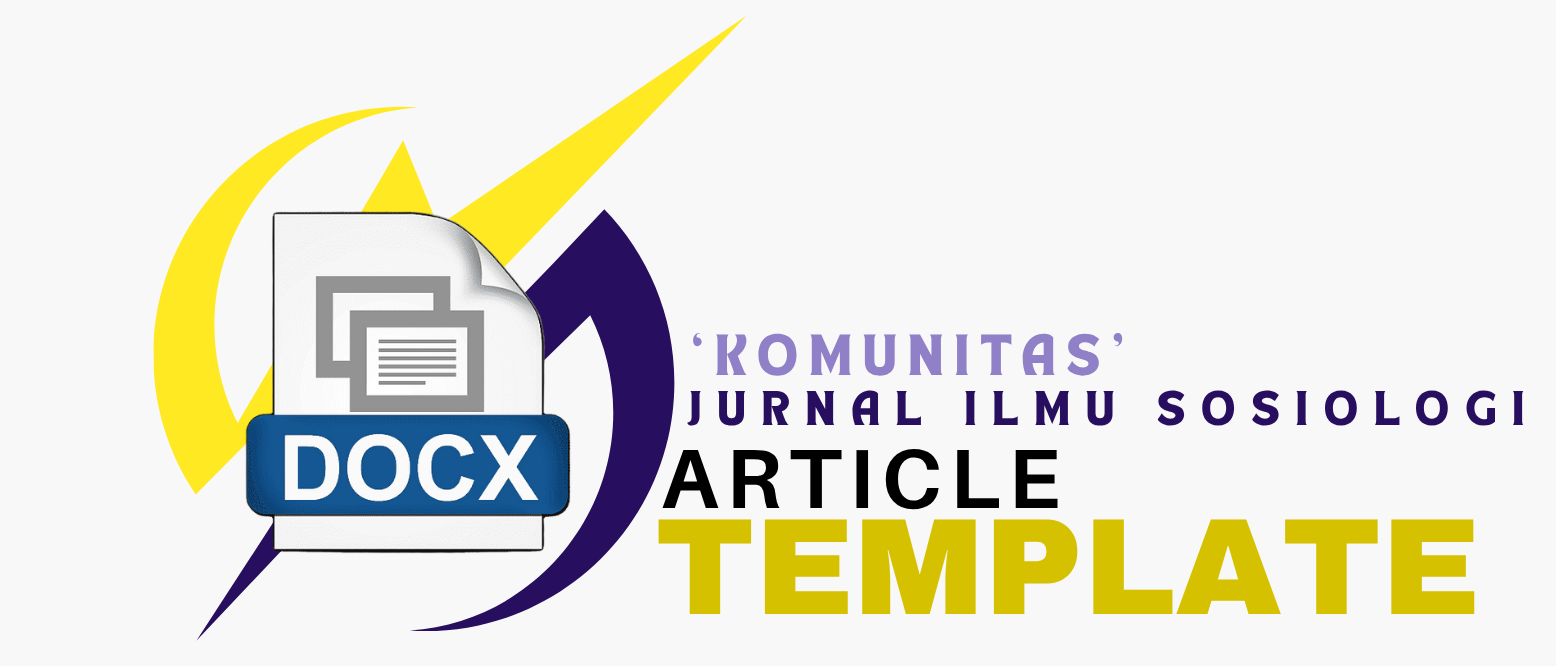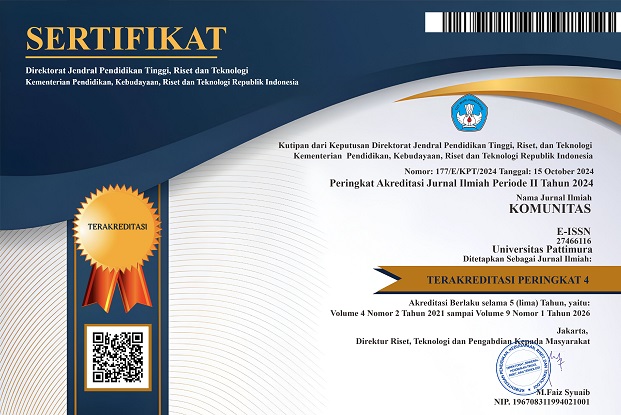Membangun Kota, Membangun Infrastuktur Air yang Berkeadilan
Abstract
Abstrak
Penelitian ini mencoba membaca fenomena krisis air yang urusannya dengan persoalan infrastruktur air, terutama yang terjadi di wilayah ini Inda dengan konsep keadilan. Dalam banyak hal, krisis air punya dampak yang sangat besar bagi masyarakat rentan dan sering kali kebijakan negara tidak mampu menyelesaikan persoalan tersebut. Krisis air tidak hanya dipandang sebagai persoalan perpipaan dan ketersediaan air tanah, namun lebih jauh lagi melampaui persoalan teknis semata. Penelitian ini mencoba mengangkat hubungan air sebagai elemen material yang selalu bergerak dinamis mengikuti relasi kuasa yang terbangun. Metode penelitian ini adalah studi pustaka dengan membaca hasil penelitian yang sudah pernah dilakukan dalam konteks India. Hasil penelitian ini menemukan bahwa krisis air selalu dekat dengan persoalan politik dan identitas, ada jaringan-jaringan sosial-politik yang mengatur siapa yang dapat siapa yang tidak. Penelitian ini menekankan bahwa pentingnya prinsip keadilan dalam proses pembangunan infrastruktur, khususnya terkait air.
Kata Kunci: Pembangunan, kota, infrastruktur air, keadilan
Abstract
This research tries to read the phenomenon of water crisis that deals with water infrastructure issues, especially those that occur in the Inda region with the concept of justice. In many ways, the water crisis has a huge impact on vulnerable communities and often state policies are unable to solve the problem. The water crisis is not only seen as a problem of piping and groundwater availability, but goes beyond technical issues. This research tries to raise the relationship between water as a material element that always moves dynamically following the power relations that are built. This research method is a literature study by reading the results of research that has been done in the Indian context. The results of this study found that the water crisis is always close to political and identity issues, there are socio-political networks that regulate who gets who does not. This research emphasizes the importance of the principle of justice in the process of infrastructure development, especially related to water.
Keywords: Development, city, water infrastructure, justice
Downloads
References
Adams, W. (2000). The Social Impact of Large Dams: Equity and Distributional Issues.
Ahmed, M., & Araral, E. (2019). Water governance in India: Evidence on water law, policy, and administration from eight Indian states. Water, 11(10), 2071.
Anand, N. (2011). Pressure: The politechnics of water supply in Mumbai. Cultural Anthropology, 26(4), 542–564.
Bachhuber, D. (2009). India, Water and Sustainable Development. Consilience, 2, 1–22. http://www-jstor-org.ezproxy.ugm.ac.id/stable/26167783
Birkenholtz, T. (2023). Geographies of big water infrastructure: Contemporary insights and future research opportunities. Geography Compass, 17(8), e12718.
DTE. (2025). Unrelenting heat and the increasing water gap in India. DTE. https://www.downtoearth.org.in/water/unrelenting-heat-and-the-increasing-water-gap-in-india
Huber, M. (2019). ECOLOGICAL POLITICS FOR THE WORKING CLASS. Catalyst: A Journal of Theory & Strategy, 3(1).
Katra, S. (2021). What is the price of water in the city of Mumbai? https://idronline.org/what-is-the-price-of-water-in-the-city-of-mumbai/
Khambete, A. K. (2025). Water access in Mumbai is a question of distribution, not scarcity. https://www.indiawaterportal.org/governance-and-policy/water-access-in-mumbai-is-a-question-of-distribution-not-scarcity
Kumar, A., Singh, N., Cooper, S., Mdee, A., & Singhal, S. (2021). Infrastructural violence: five axes of inequities in water supply in Delhi, India. Frontiers in Water, 3, 727368.
Matamanda, A. R., & Nel, V. (2024). Sustainable Development Goals and Urban Health. Springer.
Miles, M. B., & Huberman, A. M. (1994). Qualitative data analysis: An expanded sourcebook. sage.
Orlove, B., & Caton, S. C. (2010). Water sustainability: Anthropological approaches and prospects. Annual Review of Anthropology, 39(1), 401–415.
Pickett, S. T. A., Cadenasso, M. L., Grove, J. M., Nilon, C. H., Pouyat, R. V, Zipperer, W. C., & Costanza, R. (2001). Urban ecological systems: linking terrestrial ecological, physical, and socioeconomic components of metropolitan areas. Annual Review of Ecology and Systematics, 32(1), 127–157.
Prabhu, S. P. (2012). India’s Water Challenges. Atlantic Council. http://www-jstor-org.ezproxy.ugm.ac.id/stable/resrep17113
Rademacher, A. (2015). Urban Political Ecology. Annual Review of Anthropology, 44, 137–152. http://www-jstor-org.ezproxy.ugm.ac.id/stable/24811653
Rademacher, A. (2018). City Ascending, City Imploding. In Building Green (1st ed., pp. 1–22). University of California Press. http://www-jstor-org.ezproxy.ugm.ac.id/stable/10.1525/j.ctt2204r4v.5
Rana, V. K. (2024). The role of the government in tackling India’s urban water crisis. ORF (Observer Research Foundation). https://www.orfonline.org/english/expert-speak/the-role-of-the-government-in-tackling-india-s-urban-water-crisis
Rusca, M., & Cleaver, F. (2022). Unpacking everyday urbanism: Practices and the making of (un) even urban waterscapes. Wiley Interdisciplinary Reviews: Water, 9(2), e1581.
Sationo, T. I. (2022). Kewajiban Negara Dalam Pemenuhan Akses Terhadap Air. Juris Humanity: Jurnal Riset Dan Kajian Hukum Hak Asasi Manusia, 1(2), 102–118.
Wikan, U. (1995). Sustainable development in the mega-city: can the concept be made applicable? Current Anthropology, 36(4), 635–655.
Williams, P., & Drabu, I. (2012). Environmental and Social impacts of dams in India. ICE Virtual Library, 388–398.
Wolf, E. (1972). Ownership and Political Ecology. Anthropological Quarterly, 45(3), 201–205. https://doi.org/10.2307/3316532
Copyright (c) 2025 Mustaqim Mustaqim, Lukman Rais, La Basri, Uswatul Mardliyah

This work is licensed under a Creative Commons Attribution-NonCommercial-ShareAlike 4.0 International License.


2.png)










.png)

